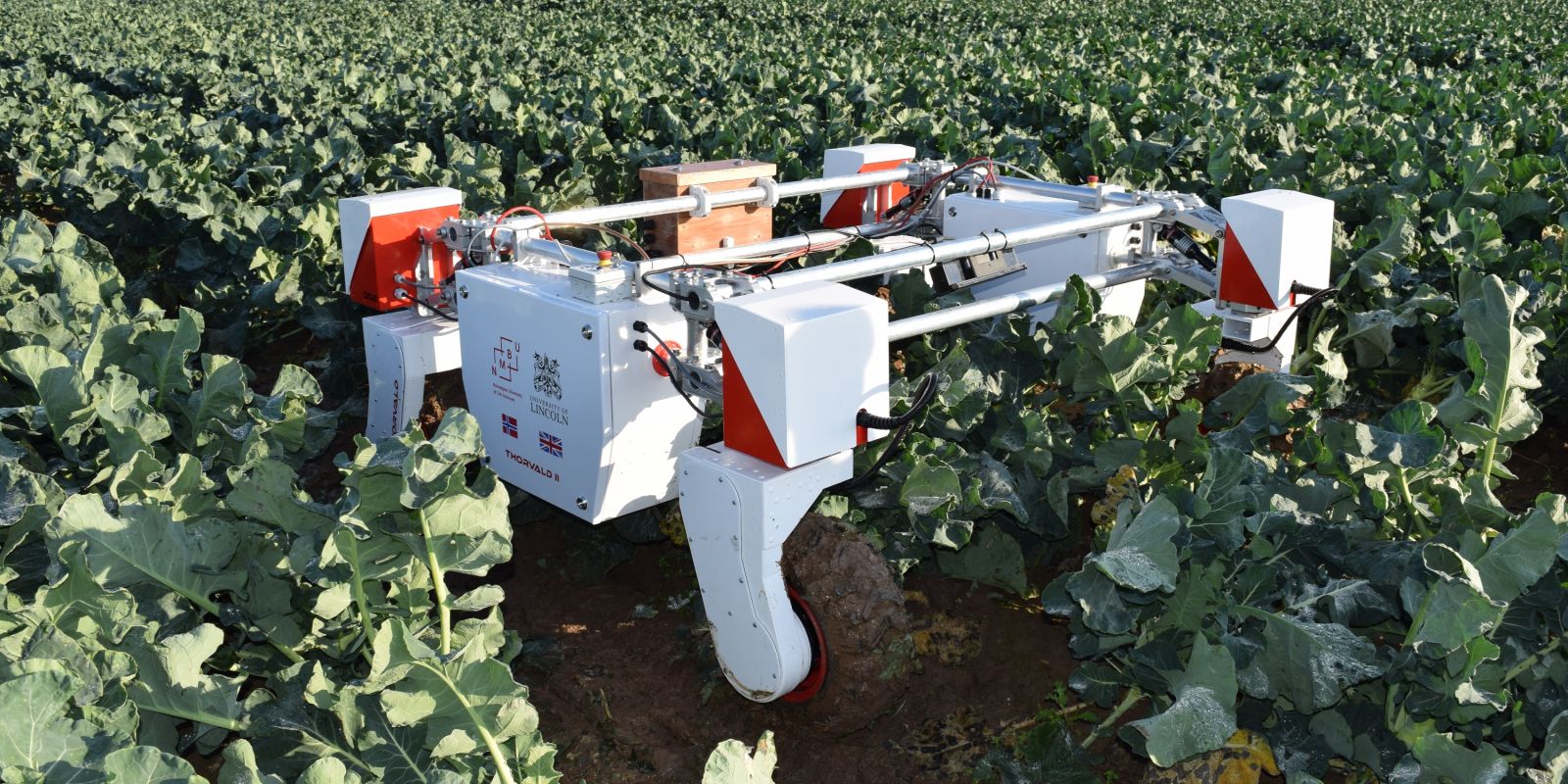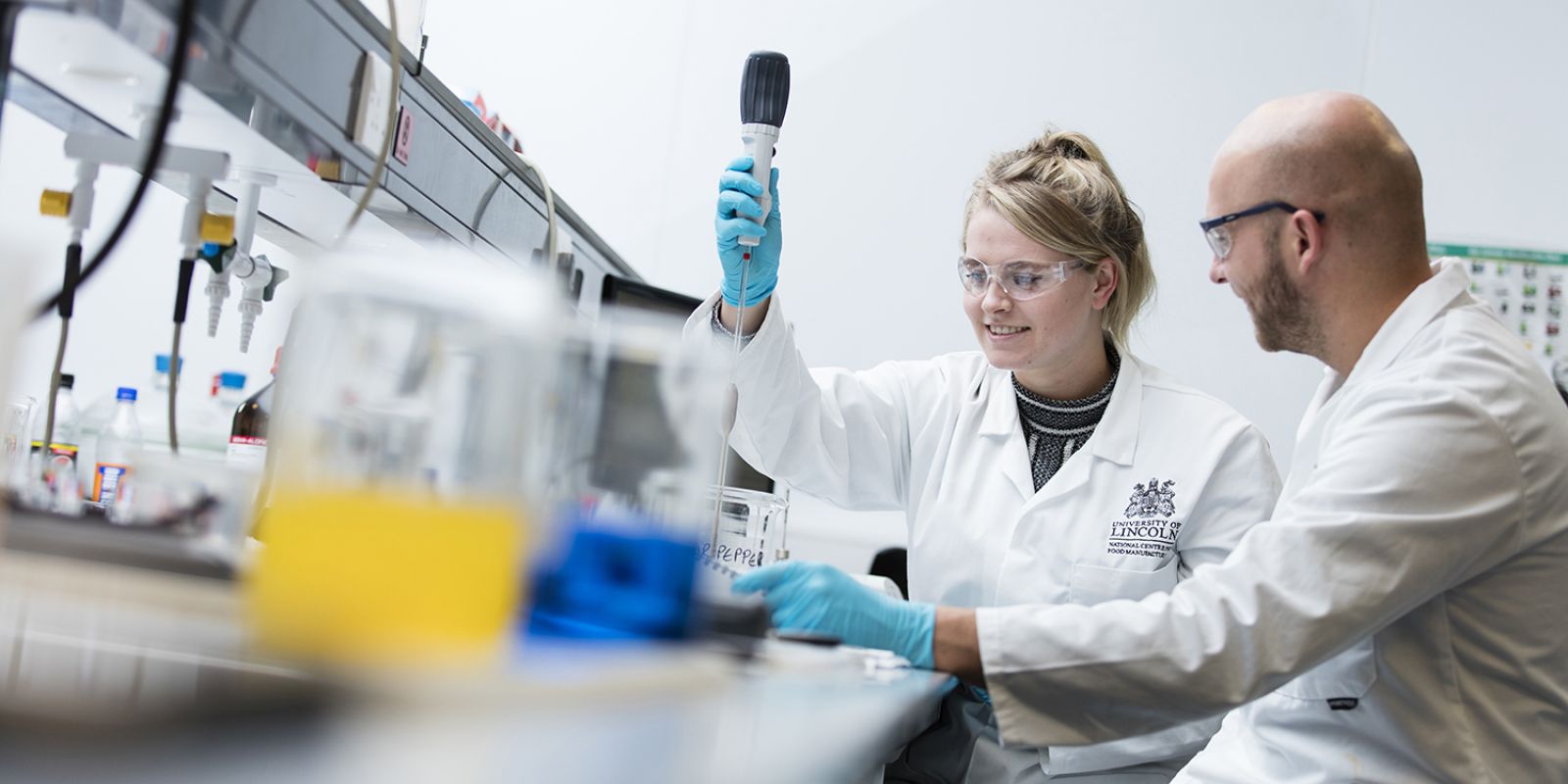Greater Lincolnshire’s Ag Zone
The UK Food Valley and LEP are proud to announce that an Agricultural Growth Zone or ‘Ag Zone’ has been created to support the growth of Lincolnshire and Rutland’s agricultural sector.
The Agricultural Growth Zone is designed to support Greater Lincolnshire agriculture and the delivery of the UK Food Valley, building on the success of the Food Enterprise Zones and uniting the growth being seen in the agritech sector in Greater Lincolnshire.
The cluster north of Lincoln, centred on Riseholme, has seen over £50m of capital investment and secured innovation projects worth over £60m since 2016, including creating Europe’s largest centre for agri-robotics.
It will support agriculture and a skills pipeline to attract the next generation into the industry, from schools engagement through further and higher education and on to postgraduate education and continuing professional development for the farming industry.
The Ag Zone will continue the growth of collaborative research which has attracted over £60m of investment to the area since 2016 and supported the establishment of new agritech businesses such as Fruitcast and Agaricus Robots, both created at Riseholme in 2021.
The Ag Zone, working collaboratively across multiple organisations, would bring all this activity together, promote the cluster nationally as a centre of excellence and attract further investment to the knowledge cluster, agricultural and agritech sectors across Greater Lincolnshire.
The overall aims of an Agricultural Growth Zone are to support:
-
regional leadership in agricultural innovation, skills, business support and technology adoption;
-
agricultural investment to deliver productivity gains, climate smart and sustainable farming as farmers respond to the Agricultural Transition (which runs to 2028).
It is proposed to develop the AG Zone in three phases:
-
Phase 1 - Develop the core Agricultural Growth Zone cluster starting in 2022, linking the work of LIAT, Bishop Burton’s Showground Campus, the Lincolnshire Agricultural Society, Barclays Eagle Lab and the growing group of companies on the Riseholme Campus north of Lincoln.
-
Phase 2 - Develop a network of demonstration farms in Greater Lincolnshire from spring 2023 to create a nationally leading set of farm demonstration sites on a range of soil and farm types.
-
Phase 3 - Deliver agricultural growth services to farms across Greater Lincolnshire from late 2023, integrating the Growth Hub, professional services, inward investment support, skills provision and access to grants and finance to support the growth of agricultural businesses.
The partners in the Ag Zone will work collaboratively to:
-
support agricultural technology development, commercialisation and deployment;
-
grow the UK Food Valley cluster of companies working on agricultural technology development;
-
create a skills pipeline from schools, through FE and HE, to postgraduate and CPD training;
-
bid for funding to grow investment in agritech skills, knowledge exchange, R&D and innovation;
-
deliver levelling up, wider economic and social impacts and A15 corridor growth aspirations.
A key early objective of the Ag Zone is to continue to attract funding to invest in facilities and programmes for skills, innovation, business start up and agricultural investment. By working together the knowledge base and industry will both gain additional resources, which in turn will attract further commercial investment.
The core delivery partners are:
-
The Lincoln Institute of Agrifood Technology (LIAT) and the Riseholme Campus at University of Lincoln, including Riseholme Farm.
-
The new Bishop Burton College Showground Campus
-
The Lincolnshire Agricultural Society
-
The Barclays Eagle Farm Lab
The Ag Zone is being supported by:
-
West Lindsey District Council is working to develop the A15 corridor north of Lincoln as a sustainable, high skills corridor and will integrate the Ag Zone into these wider economic development plans.
-
Lincolnshire County Council is interested in the Ag Zone supporting the Agricultural Transition for Lincolnshire farms, including the impact it will have on Lincolnshire County Council Farm Estate tenants and other tenant farmers.
-
The Greater Lincolnshire LEP will ensure that the Ag Zone is integrated into the wider UK Food Valley programme and supports the development of the innovation, skills and investment needed to grow farming.
“Greater Lincolnshire has the UK’s leading agricultural sector underpinning the food economy in the UK Food Valley where there are over 75,000 people employed in farming, food processing and distribution,” said Sarah Louise Fairburn, Deputy Chair of the Greater Lincolnshire LEP and Chair of its Food Board.
Our farms produce over £2 billion of crops and livestock, 11% of the English total, with particular strengths in fresh vegetables where we have 30% of English production, as well 20% of the sugar beet, 19% of the poultry and 19% of the ornamental crops in England.
“But we know the agriculture sector is changing rapidly as the food chain reacts to pressures created by the pandemic, conflict in Europe, the cost of living crisis and policy changes.
“It is vital we help the industry adopt new technology and skills, support investment in the industry and address long-term challenges such as climate change. By bringing the key organisations together who work on this in Lincolnshire we will help our farmers and support the continued growth of the agritech sector through the work of the Ag Zone.”



